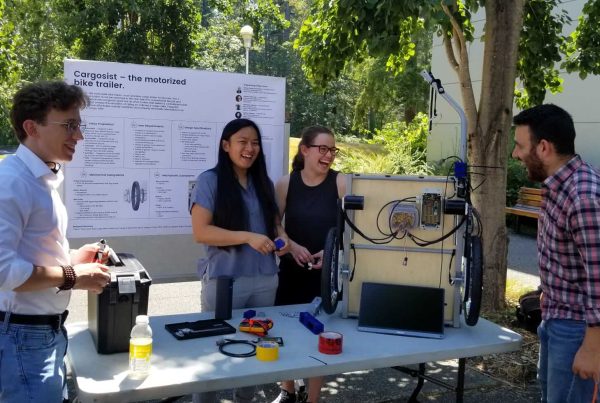Momentum-based motivation is completely valid, but I learned that it's important to maintain some level of adaptability and have strategies to restart the engine when things go south.
Right when I thought I was on the home stretch of my time at university, my motivation disintegrated. The momentum that drove me through a heavy engineering course load, ten hours a week of triathlon training, and another ten working rapidly died away and I was left wondering what happened. The experience was unsettling and demanded I take a step back to re-evaluate.
At the beginning of 2021, I was excited to start planning my last engineering co-op work-term for the coming summer semester. I’d been in back-to-back classes for 20 months. Most of my spare time between study and training sessions was used preparing and submitting applications to engineering companies that aligned with my goal of entering a high-tech industry after graduation. Having submitted about 50 applications, the prospects of finding a job seemed slim, which surprised me considering I hadn’t had much trouble finding co-op placements in the past. Then, when COVID-19 struck in late March and my classmates started losing co-op placements they’d been promised months before, the prospects of finding my own placement seemed non-existent. Without hesitation, I registered for summer classes instead.
I quickly learned that online classes are very different from the university experience I’d grown accustomed to in the three years leading up to the pandemic. In the past, I’d leave my house for campus as early as 7:00 a.m. to attend 50- or 90-minute lectures interspersed with tutorials, labs, study periods, and training sessions and would return home as late as 10:00 p.m. When classes went online, my entire post-secondary experience was reduced to a computer screen. I found the new format significantly less engaging than the in-person alternative. It’s unclear to me whether I was less engaged because of the new course format, or if my lack of motivation to return to the classroom was because the co-op I’d been anticipating never came to fruition. Regardless, it affected me. I’d already overstretched myself mentally and emotionally, hanging on to the monotony and rigor of cramming information into my mind day-in-and-day-out until the most convenient time to go on my fourth co-op.
I would not have guessed I’d be finishing that semester enrolled in only two classes. I didn’t think I would struggle to maintain focus and motivation, attending video lectures where I’d find it difficult to keep up with note-taking; that I would sit down to study and end up with pages of textbook notes but little understanding of the topic. I managed to do all of these things effectively and efficiently on campus. As frustrating as it was, it’s in my nature to tackle obstacles. I tried addressing the issue with strategies that had worked for me in the past, like task lists, detailed scheduling, the Pomodoro technique. The list goes on. Unfortunately, nothing seemed to do the trick. Eventually, as a last resort, after going as far as dropping two classes, I reached out to a “learning strategist”—a service offered at my university to help students introduce structure and strategies into their learning. I really didn’t think that a learning strategist could tell me something I didn’t already know, but what can I say, they’re specialists!
Within five minutes, the learning strategist directed our conversation to motivation. Both of us experience it as having momentum. When we succeed at a task, we are more motivated to do it; and the more motivated we are to do a task, the more successful we are at it. At the end of our conversations over the next week, he asked me to think about what level my motivation was at and what it would take to build it back up. The question allowed me to realize that if I were to return to school the following semester, I would be neither happy nor successful. It seems simple, doesn’t it? It wasn’t for me. Between having worked tirelessly towards my goal of graduating in 2021 and knowing that the prerequisites for my final year are only offered in the fall, I’d lost sight of whether I was still happy. After carefully weighing all the academic and financial implications, I decided not to return to school until the prerequisites I needed were offered again the following year.
Since deciding to take a year away from the classroom, I’ve recognized the value it will provide me and have made plans about how to spend it. I realized that when we become attached to our plans, it can crowd our attention and impair our ability to be adaptable. I was so focused on continuing my studies that I couldn’t see I was unhappy and needed a break. Commitment and structure allowed me to build strong momentum-based motivation, but momentum-based motivation can become volatile and susceptible to derailing when obstacles come along. It wasn’t necessarily my situation that derailed my motivation; the resilience of my motivation was also partially responsible. Momentum-based motivation is completely valid, but I learned that it’s important to maintain some level of adaptability and have strategies to restart the engine when things go south. I speculate that a break from school will give me the energy I need to restart my motivational engine. I’m only guessing. Ultimately, I’m here on my gap year to find that out.





